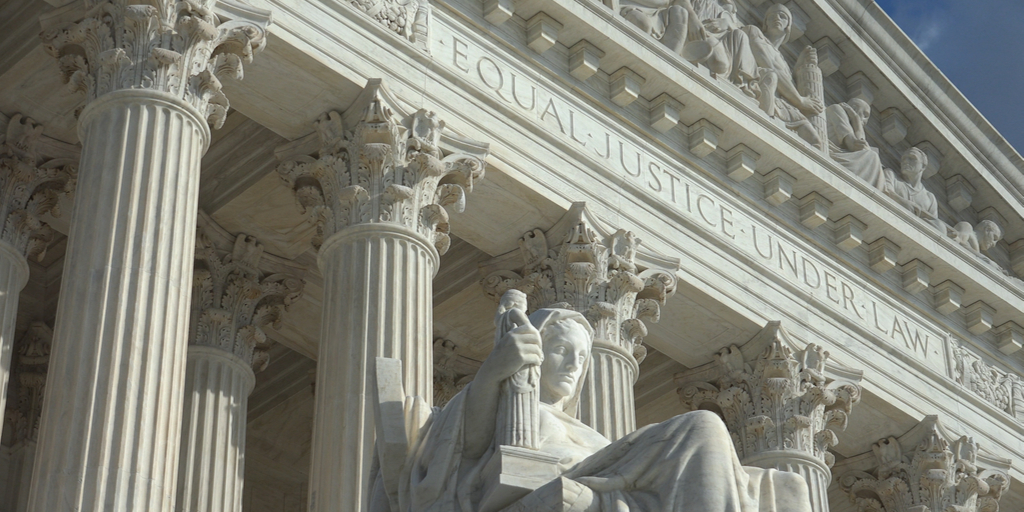Doesn’t Scalia’s originalism allow for just the kind of moral principle that Vermeule supports?
Why Supreme Court Judging Is Not Necessarily Partisan
I recently came upon this review of Richard Brookhiser’s new biography of Chief Justice John Marshall by Yale Professor John Fabian Witt. The review criticizes Brookhiser’s take on Marshall as a justice who furthered the law and originalism rather than politics. Instead, Witt believes that Marshall’s judicial career was defined by the goal of advancing his party’s political agenda. For Witt, Brookhiser is engaged in a type of myth-making that is harmful to our understanding of the law and of what we can expect from courts.
I will explore this point in a second, but it is worth point out that Witt is writing this review with an eye towards present day politics. He concludes the review:
Marshall’s ability to carry out the Federalist agenda for a generation after the party’s decisive defeat at the polls stands as a warning for what we may expect to see in our own time. Accounts of his life that downplay his politics make it harder to grasp this key point. . . . The truth is that law is not independent of party. It never has been. Law is not reducible to party, either. But now more than ever we need a realistic account of how our courts work, one that can recognize the law’s long-standing and durable interconnections with the world of the partisan operative.
Clearly, Witt’s point is that the Republicans may keep a majority on the Supreme Court that will decide cases based on what that majority claim is original meaning or law, even though the country may have rejected President Trump and the congressional Republicans at the polls. We should not, Witt implies, accept such apolitical claims. Those Republican Justices will be promoting their party’s political agenda.
After a generation of being lectured to by historians about how originalist law professors are presentist, but historians are not, such presentism seems ironic coming from a historian.
Now, back to Witt’s claim that Marshall—and all justices—are involved in party politics. If what is meant is simply that the justices are people and have different ideas about what the law is, and those ideas are often in accord with the political parties to which they belong, then this is clearly true. Marshall’s ideas on the law are not surprising given that he was a moderate Federalist, just as Scalia’s ideas about the law are not surprising given that he was a conservative Republican.
But I think Witt means more than this. He seems to be suggesting that ideas on law cannot be unrelated to party, in part because the original meaning cannot be determined. And here I would beg to differ. One can attempt to determine the original meaning, even if there was not a consensus at the time of its enactment. In that situation, one follows the interpretation that has the greater support for it. And if one is genuinely seeking the original meaning, then that is not party politics, but law.
Imagine for a minute that there were two political parties—one devoted to originalism and one not. (While Republicans seem more devoted to originalism, I am not suggesting that this contrast is one between Republicans and Democrats.) In that situation, the originalist party would be a political party, but it would also—in my view, at least—represent law and not politics. By dismissing originalists as simply about politics, one ignores an essential distinction—that the nonoriginalist considers his own values, while the originalist considers the values placed into the Constitution.
How does Marshall stack up in terms of originalism? While some scholars have emphasized strategic parts of Marshall’s opinions (such as the order of issues considered in Marbury), I have generally found his opinions to be almost always defensible in terms of originalism.
This is not to say that Marshall always reached what I would regard as the original meaning. But I do not find any of his opinions to be clear departures from the original meaning, as I do many opinions from various other courts, such as the New Deal, the Warren, and the Burger Courts. And some of his opinions are masterpieces of originalist reasoning, such as portions of Marbury.
For these reasons, I regard him as the Great Chief Justice.

